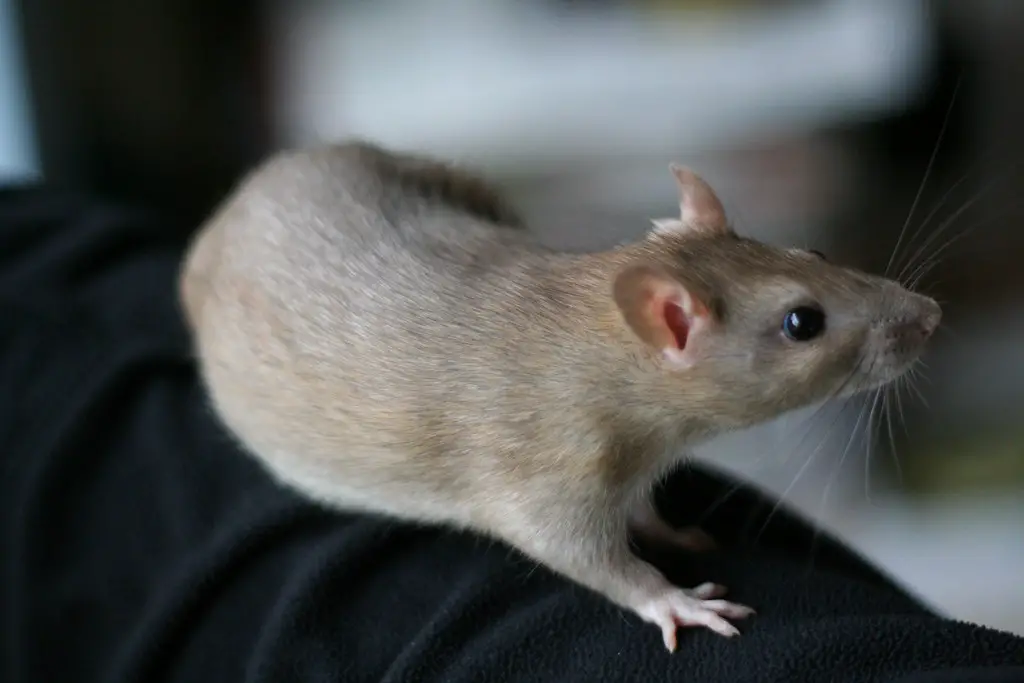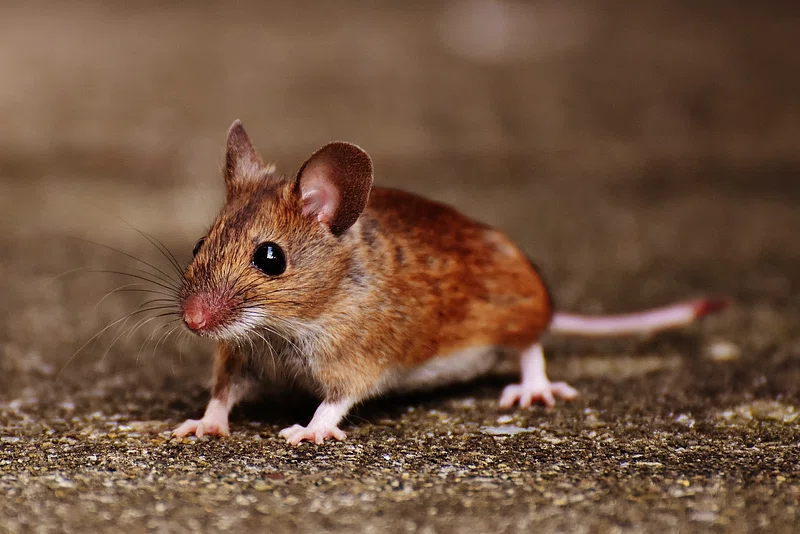Many homeowners wonder if the aromatic spice cinnamon can repel mice and aid in the quest to rid of rodents. While it’s a common belief that the scent of cloves and clove essential oil may deter mice, cinnamon’s effectiveness in DIY rodent control is under scrutiny. Investigating natural solutions like cinnamon is crucial in areas where mice are a nuisance, as it offers a potentially safe alternative to harsh chemicals.
Understanding Mice Behavior and Sensory Repulsion
Mice rely heavily on their sense of smell to survive, which is why natural mouse repellents like peppermint oil can be a highly effective alternative to chemical repellents. Understanding the behavioral patterns of mice, including the areas where mice typically forage and nest, is crucial in implementing a successful repellent strategy. By targeting these areas with strong scents that are offensive to mice, homeowners can create an environment that is less attractive to these rodents. However, sensory repulsion is just one aspect of a comprehensive rodent control plan.
Why Some Scents May Fail to Keep Mice Away
Not all scents are created equal when it comes to repelling mice. For instance, dryer sheets may seem like a viable option due to scents that mice hate, but their effectiveness is often short-lived. Additionally, if other attractants like pet food are accessible, mice might ignore these scents. Storing pet food in airtight containers can help mitigate this issue. It’s important to understand that mice adapt quickly; what may initially be an effective deterrent can become less so over time as mice grow accustomed to the scent. A multi-faceted approach to control and prevention is typically necessary for long-term results.

Is Cinnamon an Effective Repellant Against Mice?
The smell of cinnamon might seem like a pleasant addition to any pantry, but can it repel mice? While some homeowners swear by cinnamon sticks as a natural mouse repellent, scientific evidence on its efficacy is limited. Mice have a sensitive sense of smell, and strong scents are believed to deter them, but this might not be universally true for all rodents.
On the other hand, cinnamon essential oil and other similar products are often marketed as rodent repellents. These might offer a more concentrated scent that is more likely to be effective in areas where mice frequent. However, results can vary, and relying solely on cinnamon might not ensure a mouse-free home.
Exploring Natural Deterrents for Mice Infestations
Natural deterrents like peppermint oil, extracted from the leaves of the peppermint plant, are considered an alternative to chemical repellents and are highly effective in deterring mice. The use of such natural mouse repellent is gaining traction as a safe method to keep rodents at bay, especially in areas where mice are common invaders.
Cinnamon
While cinnamon sticks are readily available and can be placed in areas where mice are problematic, their actual role in repelling these pests is up for debate. Cinnamon’s strong scent is thought to overwhelm mice’s olfactory senses, acting as a natural mouse repellent. However, the effectiveness of this approach can be inconsistent and may depend on the level of rodent infestation.
Furthermore, the use of cinnamon essential oil might provide a more potent aroma compared to whole cinnamon sticks, potentially increasing its efficacy as a repellent. Yet, homeowners should consider integrated pest management strategies for long-term control over relying solely on cinnamon.
Peppermint Oil
Peppermint oil is touted as a natural mouse repellent, with a scent that mice typically dislike. This naturally occurring oil, when applied correctly, can be effective in deterring mice. Soaking cotton balls in peppermint oil and placing them in areas where mice tend to hide or near potential rodent entry points can help keep these pests away.
Additionally, creating a spray solution with peppermint oil and water in spray bottles can be a practical application method, as the strong smell of peppermint is known to be highly effective in repelling mice. It is a preferred alternative to chemical repellents, being safe for humans and pets yet hostile to the sensitive sense of smell that mice possess.
The Truth About Mothballs and Mice
Mothballs have long been used to deter rodents, with the smell of mothballs being particularly offensive to mice. However, the chemicals in mothballs can be hazardous to humans and pets, making them a less desirable option for rodent control. While they may repel mice to some extent, finding safer and more humane solutions to get rid of these pests is often recommended.
Therefore, while mothballs can deter rodents, they are not the most advisable method for homeowners to use due to their toxic nature. Alternative, safer repellents should be considered for effective rodent removal without risking the health of the household.
Cayenne Pepper
Cayenne pepper flakes, when mixed with other ingredients, can create a powerful spice mixture that can repel mice. Mice, being sensitive to spicy scents, may find the presence of cayenne pepper in areas where they roam to be unpleasant, potentially deterring their activity. However, caution should be exercised when using this method, especially around family members who may be sensitive to the strong odor or spice.
Despite its potential to deter mice, cayenne pepper is not a guaranteed solution for a rodent infestation. Mice are adaptable creatures, and while they may initially be repelled, they could become accustomed to the scent over time, reducing the effectiveness of this approach.
Lavender’s Soothing Scent
Lavender, known for its soothing properties, may also serve as a deterrent for mice. Planting lavender or using lavender-scented products can be effective at keeping mice away since mice hate the smell of this herb. It can offer a dual-purpose benefit, providing a pleasant aroma for homeowners while combating problems with mice.
However, like many natural remedies, its effectiveness can vary, and it may not be a standalone solution for severe infestations. Still, as part of a comprehensive pest management strategy, lavender could contribute to deterring mice from settling in and around the home.
Vinegar
Vinegar’s sharp scent is another smell that mice dislike. Soak cotton balls in vinegar and place them in vulnerable areas where mice are known to frequent. Their sensitive sense of smell makes them averse to the overpowering smell of vinegar, potentially making it an effective rodent repellent.
Mice navigate the world largely through their olfactory senses, and introducing strong scents like that of vinegar can disrupt their sense of security. Still, while vinegar might repel mice, it should be part of a more comprehensive deterrent approach for best results.
Essential Oils
Essential oils have gained popularity as a natural mouse repellent, offering a less toxic alternative to traditional rodent control methods. They can be a part of an integrated pest management strategy, sometimes complementing professional pest control measures. While essential oils may not entirely replace the need for professional intervention, they can serve as a first line of defense or a supplementary tactic in deterring rodents from invading living spaces.

Strategies for Rodent Control
Effective strategies for rodent control often involve a combination of methods. Rodent repellents and rodent removal techniques should be employed together to address the issue comprehensively, ensuring that mice are not only deterred but also removed from the premises.
Pairing Scents With Other Repellent Methods
Combining the use of rodent repellents with other deterrents can enhance the overall effectiveness of rodent control efforts. Safe for humans and pets, these scents can be utilized as part of a larger strategy to keep living areas free from rodent infestation. Additionally, reinforcing physical barriers, maintaining cleanliness, and removing food sources are essential steps that work in tandem with scent-based repellents to create a multi-layered defense against rodent intrusion.
Professional Pest Control Solutions
While many homeowners may attempt DIY rodent-proofing solutions, few are as effective as calling in professionals with advanced rodent-proofing skills. Expert pest controllers utilize a combination of traps, baits, and preventative measures tailored to the specific scenario, ensuring a comprehensive approach to getting rid of mice and rats. Their deep understanding of rodent behavior and access to commercial-grade repellents often result in a more permanent solution to infestations.
Moreover, professional pest control services can offer valuable advice on maintaining a rodent-free environment. They assess vulnerabilities in a property that might not be apparent to the untrained eye and implement effective strategies to prevent future invasions. This level of expertise and the assurance that comes with it may not be replicated by DIY efforts, highlighting the importance of professional intervention in serious rodent management cases.
In Conclusion: Weighing the Evidence on Cinnamon and Mice
When evaluating the effectiveness of various mouse repellents, the evidence suggests that natural mouse-repellent substances like cinnamon powder may have some impact. Sprinkling cinnamon in areas where mice frequent can produce a pungent smell that is known to irritate mice and potentially repel them. However, while cinnamon oil emits a strong scent that repels mice, its long-term efficacy as a standalone solution for mouse infestation remains uncertain. Other natural repellents, such as vinegar and eucalyptus oil, have also been noted for their ability to deter rodents. For a comprehensive approach to rodent control and prevention, it is advisable to pair natural deterrents with other methods. Steel wool can be used to block entry points and citronella candles may help in outdoor settings. Additionally, maintaining cleanliness, using traps, and considering predators like cats can greatly assist in managing a mouse infestation. Although natural solutions like cinnamon may be less unpleasant for humans compared to the smell of ammonia or mothballs, professional pest control solutions should be sought if signs of mouse activity persist.

